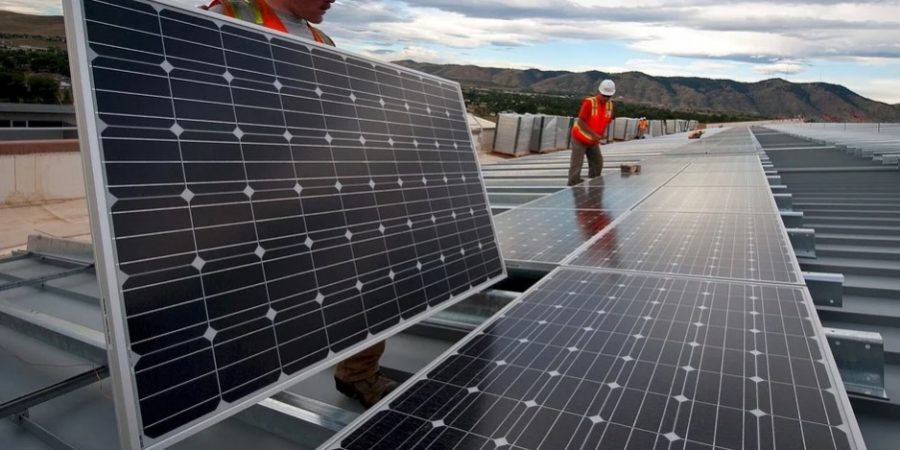
Solar energy is reliable and sustainable! In the long run, people who go solar will save thousands of dollars since solar provides energy that is more than enough throughout their lifetime. Moreover, going solar can save people from fossil fuel dependence. It goes without saying the impact of fossil fuels on our environment – the primary greenhouse gas in the atmosphere.
We are well aware of the benefits offered by going solar. Many solar companies claim that their solar products are efficient and beneficial. But what about the performance of solar panels Sydney? How efficient are solar panels? For optimal efficiency, there are some factors that should be taken into consideration. By understanding the factors that affect their efficiency, you can make an informed decision when looking for the best solar panels.
Here are the factors that affect solar panel efficiency:-
The Temperature
The temperature plays a significant role in the performance. Yes, temperature greatly influences the efficiency of the photovoltaic cell due to the inherent characteristic of the semiconductor material. Hence, the efficiency of solar panels increases when the temperature drops and vice versa.
Solar Panel Placement
North-facing is the best direction to position your modules, with the second being west, following the east. Why? Because north-facing roofs can provide enough production of energy and help make the most of your solar panels. However, it depends on the location and facing of your house, calling for the strategic placement of panels and expert installers. That’s one of the reasons why you need to let the professionals install your solar solution.
Shade
Shade is the enemy of solar energy! Even a small amount of shade on the panel can shut down solar production on all other panels. This is because solar cells are connected in a series and will operate at the current level of the weakest cells. If one solar cell is affected, it will significantly affect the output of the other cells.
Maintenance
Solar panels are extremely durable and last for 15-25 years. However, regular cleaning and maintenance are crucial to maximise the amount of light available to turn into electrical power.
The Orientation, Inclination, And Latitude Of The Place
In order to take advantage of solar power, the orientation, latitude, and inclination should be considered. The right alignment of these variants helps ensure to your panels produce maximum energy.
Cloud Patterns
Unfortunately, there is nothing to stop cloud patterns from interfering with the efficiency of your solar panels, and there is very little you can do to reduce their impact. These natural fluctuations in UV light exposure will cause irregular energy output from your panels.
Heat Build-Up
If you live in a warm climate, you need to consider the impact of heat build-up on your solar panels. If your panels become too warm, this will compromise their energy output. To reduce the impact of heat build-up, ensure they get airflow by allowing two inches of space between your roof and panels. Additionally, ensure that the panels are surrounded by light colours that will not absorb heat so much.
Humidity
Like heat, humidity can also have an impact on the function. To ensure humidity does not prevent your solar panels from working optimally, you should ensure plenty of airflow between your panels and your home’s roof.
Your Solar Inverter
You need a solar inverter that will effectively convert energy from your solar panels into energy you can use in your home. If your solar inverter is low-quality, this could result in poor energy conversion rates, meaning you lose some of the solar power generated from your panels. So, always ensure your solar inverter is of high quality, or you may not receive optimal ROI on your solar panel investment.
Type Of Solar Panels
When choosing solar for your home, it’s important to know which types of panels are the most efficient. Monocrystalline panels are the most effective type of solar panels, with an operational efficiency of around 23%.
To ensure your panels are efficient, you should avoid the least effective variation of thin film panels. Monocrystalline panels make the most efficient option, but you can also opt for blue crystalline or polycrystalline panels, the second most efficient option. Some homeowners do not like the visual aesthetic of the blue or poly panels. However, they make a smarter choice for your home than thin film solar panels.
Solar Tracking
One of the best ways to increase the efficiency of your solar panels is to opt for solar tracking-enabled panels. Solar tracking panels can add as much as an hour to your sunlight hours by tracking the sun’s movements throughout the day. The panels then shift to ensure maximum UV exposure. This feature makes an excellent choice if you’re looking to maximise your return.
Solar Batteries
Your solar panels won’t always collect solar power, and there will be days when sunlight exposure is minimal. For this reason, investing in a solar battery allows you to store your solar energy for later use is a good idea. When your panels are less efficient, you can rely on power from your solar battery rather than turning to expensive energy from the grid.
Summary
Many factors affect the efficiency of your solar panels, which is why it is essential to maintain your panels and keep in contact with solar experts during your panels’ lifecycle. If you need advice regarding your solar panels or are considering switching to solar energy, reach out to our team at SolarPath today.
Read More:
Understanding the Current Solar Energy Rebates and Grants in NSW
Benefits of Having Solar Panels in your Home










 Solarpath | Solar Path NSW GPS Directions
Solarpath | Solar Path NSW GPS Directions